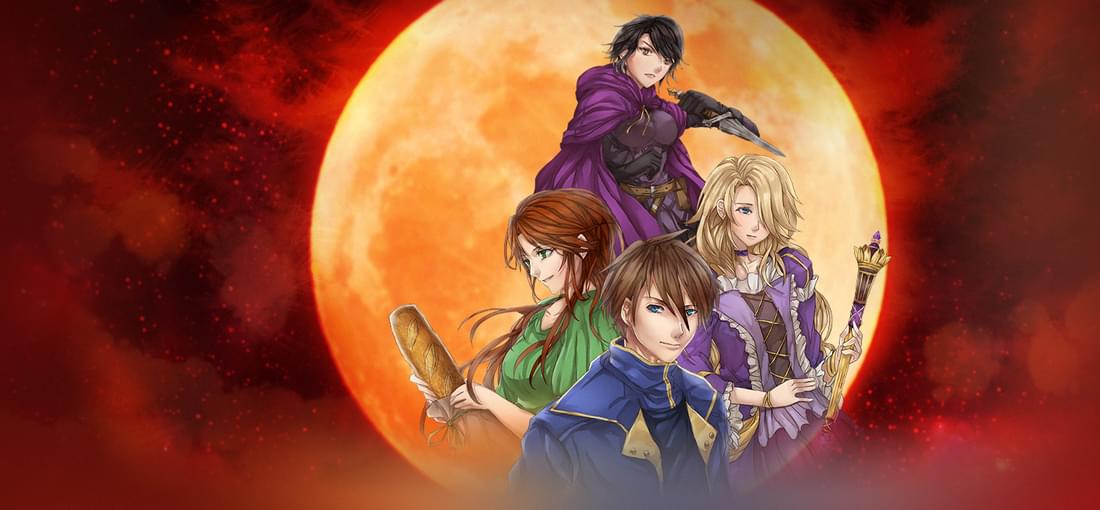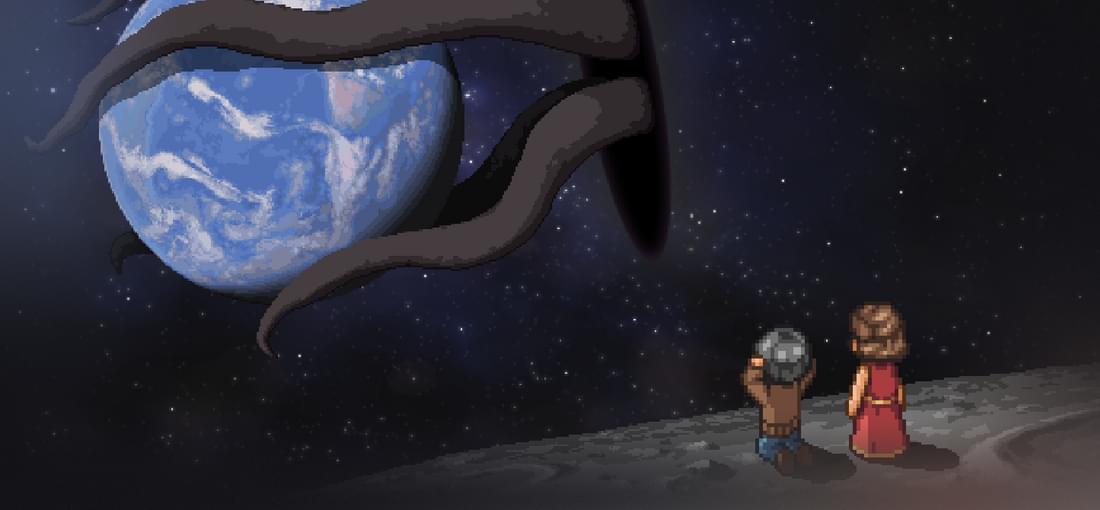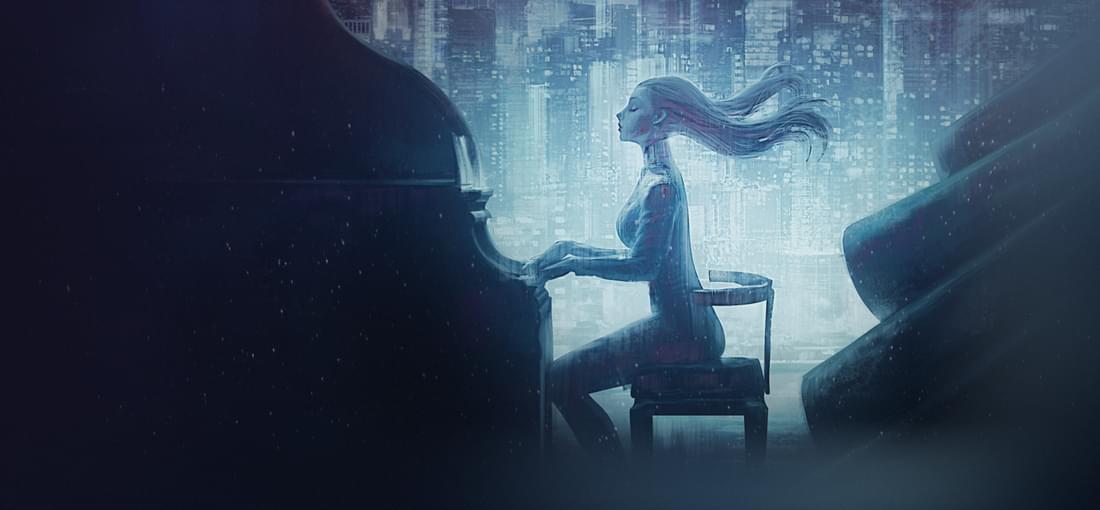


For me, the game is best defined as a visual novel realized with RPG Maker. If you liked To the Moon (which was, as admitted by the developer, the inspiration of this game) and its sequels, you are likely to like this one too: it tells an exciting tale and tackles complex, mature themes. Bleeding Moons follows an essentially linear plot while offering throughout the game different choices to the player: most of these do not change the immediate outcome of the plot but contribute to determine which endings are available at the end of the game (four main endings with many variations for each ending). Additionally, during the play, certain choices will unlock certain dialogues and cutscenes providing therefore different perspectives on the same story. The game offers three romance options, and although romance seems initially an accessory to the "main story", eventually becomes the very point of the game. It is thus a bit unfortunate that the girls are treated so unevenly. Luna, for instance, gets most of the screen time and thus the player has most opportunities to "bond" with her. River gets much less spotlight but she is the choice made by the main character before the player takes control, and while choosing someone else is possible, to me it feels a bit wrong from a role-playing perspective. Finally, Sélène gets very little screen time and the player is given little incentive to care for her (though she's an endearing character in her own right) and I also found more difficult to get a "good" ending with her. Being VN-like, it's a pity there is no way to "skip dialogues" as in VN: even with a plurality of saves, there is no way to quickly see the outcome from different choices without replaying linear stretches (one playthrough is 5-8h depending on playstyle and reading speed). Bonus points for the commentary mode. In the end I was torn between 4 and 5 stars but thinking it was done by a one-man team I said to myself what the hell and I went for 5.

If you have played To the Moon (plus minisodes) and Finding Paradise you should know what kind of game this is, if not (despite what the description says) I would advise to play those two games first: while it is true that the story is independent from those games, they still provide much needed context. Going in with no previous experience will make the story more surprising, but also confusing. If you liked the previous two games, chances are that you'll like this one as well: narratively it does some interesting things, and it keeps pushing what can be done with the RPG Maker aesthetics. That being said, I cannot rate it as high as the other two games for a couple of reasons: - All the games in the series are linear, but IF is very much railroaded: there's very little of those moments of explorations that lead to the discovery of tiny details about the scenes, or the very light puzzles that could be found in earlier titles. I personally want my games to be interactive experiences and for my tastes there's not enough interactivity in IF. - I have minor issues with a couple of weirdly formulated sentences at the end of the game (which is important since this game is basically all about the story). I also found the soundtrack less inspired compared to the previous titles.

This game manages to do several things good and bad at once. Story: for a VN the most important category, it scores high in my view for the interesting setting (chasing a serial killer in a dystopian futuristic city), characters and themes touched. At the same time, the writing is occasionally uneven and there are noticeable pacing issues, especially in the middle of each chapter and at the end. Gameplay: As a VN, it tries to keep things varied by alternating standard multiple choices dialogues, an interrogation minigame which requires the player to select the right evidence at the right time and an investigation minigame. Since for each of these there is only one solution though, they are not as fun as they might otherwise have been. This is not to say the game is linear: there are some choices that have a big impact on the later chapters and ultimately on the ending, and they are hard to miss because the game presents them big and large with the screen flashing all around the options (Telltale-like, if you know what I'm talking about) Art & Sound: It has a very peculiar art style, very different from average VN fare, whether you like it or not is a matter of taste. I personally found it a bit too drab and fuzzy, but in particular I found annoying that the character design is not consistent between regular gameplay and cutscenes (more like stills showing a detail or a location from a different perspective), and this unfortunately affects especially the two main characters, since they are present in virtually every cutscene. Sound is mostly piano, it might seem strange at first to have a score so "classical" in a futuristic setting but it works well to crate a gothic, oppressive atmosphere. Averaging everything together I end up with a rating between three and four stars, but if you are willing to show some tolerance for the shortcomings I mentioned above I'd definitely recommend to buy it.